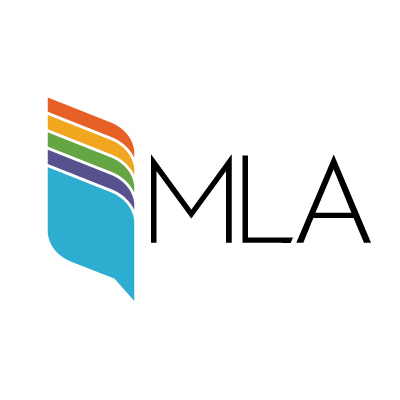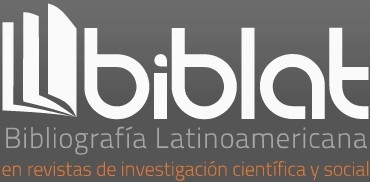About the Journal
Focus and scope
Tópicos del Seminario is a biannual open access publication of a predominantly monographic nature dedicated to the problem of meaning and significance. The central purpose of the journal is to promote, develop and circulate contemporary debates around the problems of different discourses, verbal and non-verbal, manifested in the diversity of texts and practices that make up a culture. Each volume focuses on a topic of interest to semiotics and other related disciplines, such as language sciences, semantics, discourse theory, and analysis, literary theory, art theory, philosophy of language, among others.
Tópicos del Seminario, also intends to promote dialogue and intellectual exchange with the national and international scientific community, especially the Spanish-speaking community, in the aforementioned areas. The journal publishes research papers, reviews articles (from a school of thought or an author's career), and reviews new publications. It only takes into account the most relevant, original, and recently produced works, whose contribution is significant for the advancement of knowledge in the disciplines and themes to which it is oriented. The contributions sent may be written in Spanish, Portuguese, French, Italian, or English. The texts received will be subjected to a peer evaluation process.
Tópicos del Seminario is a journal edited and funded by the Semiotics and Significance Studies Program of the Vice-Rector's Office for Research and Postgraduate Studies of the Benemérita Universidad Autónoma de Puebla. It is currently distributed in a digital format.
Peer review process
The journal only publishes original, unpublished, and not proposed texts simultaneously, to be reviewed in another publication. Research papers received are subjected to the peer review system, maintaining the anonymity of authors and reviewers. As soon as an article is received through the platform, it is reviewed with the Turnitin plagiarism detection tool in order to determine the percentage of similarity it could have with other publications. Once this process is concluded, the text goes through a first filter, supervised by the volume’s editor and the Editorial Committee, who consider its thematic and formal relevance. Articles that meet the requirements of relevance and editing standards (specified in the "Guidelines for authors") enter the reviewing process.
The text that is sent to be evaluated is first refined from any reference to the author. The editor can choose the reviewers from the journal's portfolio of arbitrators, or propose specialists if there are none in our registry. The journal has a wide portfolio of national and international referees, with a recognized trajectory in the disciplines of their competence, and with coverage of the various languages in which contributions are received: Spanish, Portuguese, French, Italian, and English.
Once the two referees have been determined, the journal communicates with the reviewers and sends them the refined text and an evaluation form, which refers to the criteria of originality, contribution to the disciplines involved, theoretical and methodological coherence, the relevance of the sources bibliographic, among others, and also includes the determination to publish, modify, or not publish the article.
If both opinions are positive, the text is approved for publication. In the event that one opinion is positive and the other negative, a third arbitrator may be appointed, or the editor may exercise this function.
All texts approved for publication are reviewed and corrected by personnel specialized in style correction: the resolution of doubts that arise in the process of stylistic and formal revision is carried out through dialogue with authors and, when appropriate, with translators. Before the layout process begins, the articles are sent to the authors to obtain their approval before being edited.
Publication frequency
The Tópicos del Seminario journal is biannual and publishes full volumes. Since its appearance, in print version, in 1999, the journal has rigorously maintained and continues to do so, the semi-annual edition of its volumes.
Currently, the journal appears at the beginning of each of its two-semester terms.
The time that elapses between the receipt, review, and acceptance of an article is six months. Articles received in Spanish can reduce this time interval, while those that need to go through a translation process, sometimes require a slightly longer interval. The journal has a portfolio of specialist translators in the disciplines it serves, as it considers the circulation of science in Spanish to be of relevance; one of its policies is to contribute to the consolidation of a scientific metalanguage in our language.
Open access policy
This journal provides open access to its content, as it is based on the principle that free access to research contributes to a broad and fluid exchange of culture and knowledge. To achieve this end, Tópicos del Seminario subscribes to the Creative Commons (CC) guidelines regarding the licensing of citing, reproducing, and offering the published work to other audiences, under certain restrictions.
Therefore, the journal has adopted the BY NC SA modality, which requires to indicate the attribution of the text to the author (BY), obliges it not to be used for commercial purposes (NC), and allows "equal sharing" (SA) published texts, which refers to the copying and redistributing the material in any medium or format, taking into consideration that for any quotation or reproduction of a text published in Tópicos del seminario, it is required to mention the date of the original publication.
In order to facilitate access to a wide audience, the journal's website is available in both, Spanish and English.
Tópicos del Seminario does not charge authors for submitting and processing articles for publication.
Edition
To facilitate interoperability between systems with different formats, texts are edited in different formats: PDF, XML (according to the Scielo Publishing Schema, SPS standard), HTML, E-PUB.
Indexing
With the purpose of guaranteeing national and international visibility to the published texts, Tópicos del Seminario is registered in databases, in scientific journal portals, and in various indexes:
CONACyT Classification System for Science and Technology Journals (www.conricyt.mx/acervo-editorial/revistas-arbitradas-del-conacyt) nr. of record: 196.
Scielo México (www.scielo.org.mx)
Scielo Citation Index (Web of Science) (see via CONRICYT, Thomson Reuters, nr. record: 106)
MLA International Bibliography (www.mla.org)
MLA Directory of Periodicals (www.mla.org)
CLASS (CLASS)
CSA Linguistics and Language Behavior Abstracts, LLBA
LATINDEX, Regional Online Information System for Scientific Journals of America Latin America, the Caribbean, Spain, and Portugal (Latindex)
REDALYC, Network of Scientific Journals of Latin America and the Caribbean (Redalyc)
EBSCO (www.ebsco.com)
LINGMEX, Bibliography Linguistics of Mexico (LINGMEX)
HELA, Hemeroteca Latinoamericana (Hemeroteca Latinoamericana)
MIAR, Information Matrix for Journal Analysis (MIAR)
BIBLAT, Latin American Bibliography in scientific and social research journals (Biblat)
DIALNET (Dialnet).
Code of ethics
Tópicos del Seminario subscribes to the code of ethics established by the Ethics Committee for Publications (COPE, for its acronym in English). Editors, authors, and reviewers must abide by the national and international rules of conduct for research, as well as the "Basic practices" that this organism has determined since 2017 to guide good practices in the editorial processes. The "Basic practices" established refer to the following headings: Reports of misconduct, Authorship and contribution, Complaints and Appeals, Conflicts of Interest, Data and Reproducibility, Ethical Oversight, Intellectual Property, Journal Management, Peer Review Processes, Post-Publication Discussions, and Corrections Details of each of these processes is available at publicationsethics.org.
Anti-plagiarism system
Being that the publication of unpublished texts is one of the journal's policies, these are verified using the Turnitin tool, in order to make a comparison and determine the degree of coincidence that a text received to be published, could have with other texts already published.
Directive Committee
María Isabel Filinich (BUAP, Responsible Director)
Luisa Ruiz Moreno (BUAP)
María Luisa Solís Zepeda (BUAP)
Scientific Committee
Mauricio Beuchot (UNAM, Mexico)
Desiderio Blanco (University of Lima, Peru)
Per Aage Brandt (Case Western Reserve University, United States)
Thomas Broden (Purdue University, USA)
Tatiana Bubnova (UNAM, Mexico)
Jacques Fontanille (University of Limoges, France)
Victor Ivanovici (Aristotle University, Thessaloniki, Greece)
Noé Jitrik (University of Buenos Aires, Argentina)
Eric Landowski (Center for the Study of French Political Life, CNRS, France)
Ana Claudia Mei Alves de Oliveira (Pontifical Catholic University of São Paulo, Brazil)
Luz Aurora Pimentel (UNAM. Mexico)
Iuri Talvet (University of Tartu, Estonia)
Journal history
The editorial project arose from the works that are developed in the Seminar of Studies of Signification, based in the Semiotics Program of the Benemérita Universidad Autónoma de Puebla. This seminar brings together specialists from various institutions on a monthly basis around an annual program organized into three thematic modules, each of which takes place over four months. Hence, the chosen title, Tópicos del Seminario, seeks to indicate that the topics addressed in each volume are not only representative of current concerns in the areas involved, but also of the work carried out within the Seminar.
The journal began to be published in 1999 and, since then, it has rigorously maintained its semi-annual appearance and has had, from the beginning, the collaboration of the most prestigious specialists in semiotics and related branches.
Tópicos del Seminario began as a monographic journal, a feature that it maintains today, but has added new sections to the Articles, such as the News of the Greimas Fund (which collects reviews of new publications that enter the bibliographic collection of the Program of Semiotics), Horizons (which includes works that expose the trajectory of an author, of a current of thought or school, or of a line of research, whose contributions have been or are relevant for the development, consolidation, and enrichment of semiotic theory), and Tributes (in which the work of authors is reviewed post mortem, linked to the journal project, whose production has had great relevance in the disciplinary field in which the journal is registered).













